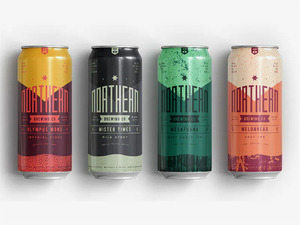Design Trends for Aluminum Can Suppliers
Publicado por Jayson Smith
Cuerpo
Ball Corp., the world's largest aluminum can supplier, announced last week that it would be requiring contract customers to buy five truckloads of beer per year. That is the equivalent of 1.2 million cans. That is not enough to make the company happy, so it decided to impose new requirements. As a result, some contract customers have already stopped buying beer cans from them. The new rules will affect other suppliers as well, including manufacturers of plastic and paper products.
Price increases
Recent price increases in aluminum have hurt the manufacturing sector, raising the cost of canning and distribution. The increases are caused by several factors, including a decrease in aluminum production in China, new government policies, and brand commitments. The increased price of aluminum also drives up the cost of fundamental operations, such as producing cans and constructing new storage facilities. Increased costs lead to job losses, and businesses are forced to raise prices. In the end, customers are left footing the bill.
While many of these manufacturers face the same situation, Ball Corp is taking action to ensure a continuous supply of cans. This company has increased its minimum order quantity to 1 million cans. The company is partnering with distributors to provide more personalized services and lower minimum order requirements. In addition, the company offers less-stringent payment terms and shorter lead times. These changes will be reflected in the price increases, but customers can expect to continue receiving their cans.
Supply chain disruptions
Colorado craft beer brewers are feeling the squeeze as supply chains for aluminum can suppliers are disrupted by the Covid virus pandemic. This disruption is also having a ripple effect on the processed tomato industry. As the can shortage causes prices to spike, beer brewers are being forced to raise prices and increase minimum order sizes. Similarly, beer can manufacturers are facing tight supply chains and unusual demand/supply ratios.
In addition, the construction and beverage industries have experienced a shortage in aluminum cans. Despite the current glut, beverage makers have faced supply chain challenges in the past. In the third quarter of 2016, Monster Beverage had trouble meeting rising demand because of supply chain challenges. It is estimated that demand for aluminum cans will rise by 50% by 2022. As a result, prices will rise across the board for consumer goods.
Design trends
To stand out from the competition, aluminum can suppliers and manufacturers must make their products look different from their competitors. Consumers are increasingly focusing on the shell and tab of a can instead of the entire package. This is an important point because brand owners know how important it is to give their products a distinct look on supermarket shelves. Here are some design trends for aluminum can suppliers to consider. Read on to learn how you can use these trends to your advantage.
Stay in touch with market trends. While preparing your inventory, always keep an extra month's worth of cans on hand. This is especially important in the spring and summer months. Keep communication lines open with your can supplier to be alerted to any change in demand. Once you've established a reliable can supplier, they can help you find a product that's right for your business. In addition, you'll be able to communicate with them about production schedules and product availability.
Recyclability
A large portion of aluminum used for cans is recycled, according to the Can Manufacturers Institute. Plastics are commonly recycled, becoming carpet fiber and landfill liners, while custom aluminum cans can be recycled infinitely. The aluminum can manufacturers follow a detailed roadmap for recycling. To help the aluminum can industry meet its targets, it works with recycling companies to improve the product's recyclability. Here are some tips to improve the recyclable rate of aluminum cans:
First, consumers should understand the process of recycling beverage cans. While there are several options for beverage can recycling, deposit systems should be easy to implement and redeem. Also, deposit amounts should be reasonable, and the deposit amounts should be clearly stated on the container. Manufacturers of aluminum cans also generate more money from commodity sales than other container manufacturers. For this reason, they should pay lower fees to stewardship organizations than other companies.
Impact on craft brewers
In a statement, the Brewers Association explained the negative impact of the new policy, saying that minimum order requirements for aluminum cans will reduce recyclability and value of the material. As a result, breweries that don't meet these minimum order requirements may turn to plastic shrink sleeves or pressure-sensitive can labels, which reduce the recyclability and value of aluminum cans and contribute to carbon emissions. Additionally, the increased costs and added transportation of aluminum cans to distributors will limit craft brewers' ability to source cans.
The world's largest aluminum can supplier, Ball Corp., has raised the minimum can order for craft breweries. Now, non-contract customers - which include many smaller breweries - must purchase a minimum of five truckloads of cans per product. Before, the minimum order for non-contract customers was one truckload per beverage. This change will cause the cost of aluminum cans to go up dramatically.
Price increases
Recent price increases in aluminum have hurt the manufacturing sector, raising the cost of canning and distribution. The increases are caused by several factors, including a decrease in aluminum production in China, new government policies, and brand commitments. The increased price of aluminum also drives up the cost of fundamental operations, such as producing cans and constructing new storage facilities. Increased costs lead to job losses, and businesses are forced to raise prices. In the end, customers are left footing the bill.
While many of these manufacturers face the same situation, Ball Corp is taking action to ensure a continuous supply of cans. This company has increased its minimum order quantity to 1 million cans. The company is partnering with distributors to provide more personalized services and lower minimum order requirements. In addition, the company offers less-stringent payment terms and shorter lead times. These changes will be reflected in the price increases, but customers can expect to continue receiving their cans.
Supply chain disruptions
Colorado craft beer brewers are feeling the squeeze as supply chains for aluminum can suppliers are disrupted by the Covid virus pandemic. This disruption is also having a ripple effect on the processed tomato industry. As the can shortage causes prices to spike, beer brewers are being forced to raise prices and increase minimum order sizes. Similarly, beer can manufacturers are facing tight supply chains and unusual demand/supply ratios.
In addition, the construction and beverage industries have experienced a shortage in aluminum cans. Despite the current glut, beverage makers have faced supply chain challenges in the past. In the third quarter of 2016, Monster Beverage had trouble meeting rising demand because of supply chain challenges. It is estimated that demand for aluminum cans will rise by 50% by 2022. As a result, prices will rise across the board for consumer goods.
Design trends
To stand out from the competition, aluminum can suppliers and manufacturers must make their products look different from their competitors. Consumers are increasingly focusing on the shell and tab of a can instead of the entire package. This is an important point because brand owners know how important it is to give their products a distinct look on supermarket shelves. Here are some design trends for aluminum can suppliers to consider. Read on to learn how you can use these trends to your advantage.
Stay in touch with market trends. While preparing your inventory, always keep an extra month's worth of cans on hand. This is especially important in the spring and summer months. Keep communication lines open with your can supplier to be alerted to any change in demand. Once you've established a reliable can supplier, they can help you find a product that's right for your business. In addition, you'll be able to communicate with them about production schedules and product availability.
Recyclability
A large portion of aluminum used for cans is recycled, according to the Can Manufacturers Institute. Plastics are commonly recycled, becoming carpet fiber and landfill liners, while custom aluminum cans can be recycled infinitely. The aluminum can manufacturers follow a detailed roadmap for recycling. To help the aluminum can industry meet its targets, it works with recycling companies to improve the product's recyclability. Here are some tips to improve the recyclable rate of aluminum cans:
First, consumers should understand the process of recycling beverage cans. While there are several options for beverage can recycling, deposit systems should be easy to implement and redeem. Also, deposit amounts should be reasonable, and the deposit amounts should be clearly stated on the container. Manufacturers of aluminum cans also generate more money from commodity sales than other container manufacturers. For this reason, they should pay lower fees to stewardship organizations than other companies.
Impact on craft brewers
In a statement, the Brewers Association explained the negative impact of the new policy, saying that minimum order requirements for aluminum cans will reduce recyclability and value of the material. As a result, breweries that don't meet these minimum order requirements may turn to plastic shrink sleeves or pressure-sensitive can labels, which reduce the recyclability and value of aluminum cans and contribute to carbon emissions. Additionally, the increased costs and added transportation of aluminum cans to distributors will limit craft brewers' ability to source cans.
The world's largest aluminum can supplier, Ball Corp., has raised the minimum can order for craft breweries. Now, non-contract customers - which include many smaller breweries - must purchase a minimum of five truckloads of cans per product. Before, the minimum order for non-contract customers was one truckload per beverage. This change will cause the cost of aluminum cans to go up dramatically.












Comentarios